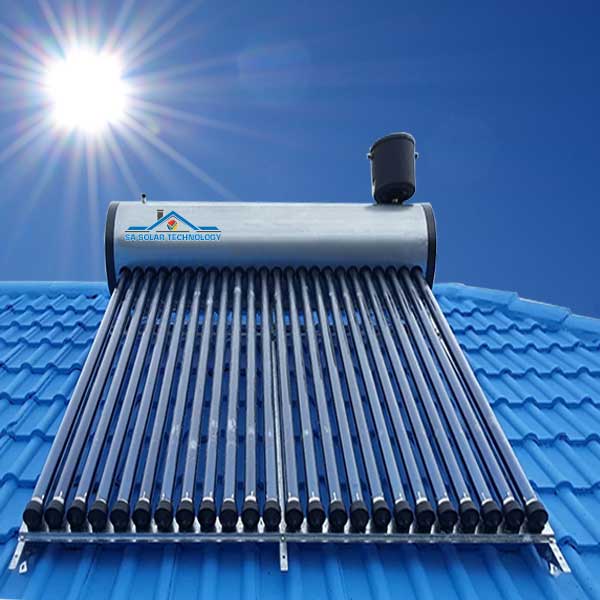Finding the best way to heat your water for your home is crucial for environmental sustainability and efficiency. Heat pumps and solar geysers have proven to be highly efficient options for energy-efficient water heating. In this article, we will dive into the benefits heat pumps and solar geysers for your home.

How Solar Geysers Work
A solar geyser use the power of the sun to heat water. These systems typically consist of solar collectors, a storage tank, and a circulation system. They work by absorbing heat from sunlight, which is then converted into thermal energy. Using solar geysers reduces reliance on traditional electricity-based systems.
How Solar Geysers Save Energy
One of the main benefits of solar water heaters is their ability to cut down on energy usage. Since they rely on sunlight, they minimize your overall heating expenses. In addition to saving money, they are also better for the environment.
You’ll get the most out of solar geysers in areas with plenty of sunshine. Even on cloudy days, many systems include supplementary heating elements to keep your water heated.
Who Should Use a Solar Geyser?
Using solar-powered water heaters works well for people who want to reduce their energy bills. If your home receives a lot of sunlight can get the most value from this technology.
However, it’s important to consider the initial cost of a solar-powered geyser. Even though you will save in the long run, the initial setup can be significant. However, many governments offer incentives to offset the initial investment.
What is a Heat Pump?
A heat pump extract heat from the air to heat water. Rather than generating heat directly, they transfer heat from one place to another heat pumps Johannesburg. This makes them extremely efficient, because they consume significantly less energy compared to conventional heating systems.
Advantages of Heat Pumps
One of the biggest reasons to choose a heat pump system is its energy efficiency. By using less electricity, heat pumps reduce energy usage by as much as 50-70% compared to conventional water heating systems. The result is lower monthly bills on energy expenses.
In addition to energy savings, they have a smaller environmental impact. Since they use renewable energy, they are a greener option compared to older systems.
When to Choose a Heat Pump
Using a heat pump works best for people who live in moderate climates. They perform well in regions with moderate temperatures, but they may require additional heating support in very cold regions.
Like solar geysers, heat pumps require a larger initial investment. Over time, the savings on electricity help you recover the initial cost over time.
Heat Pumps vs Solar Geysers
Solar geysers and heat pumps are great options for cutting down on energy costs. However, each system has its strengths and weaknesses. Consider the following comparison:
Energy Efficiency: Solar geysers use free solar energy, while heat pumps require some electricity but still save energy.
Cost: The installation cost of solar geysers is often higher, but they pay for themselves through energy savings over time. Heat pumps have lower installation costs compared to solar geysers.
Climate Suitability: You’ll get the most out of solar geysers in sunny climates, while heat pumps work well in moderate climates.
Final Thoughts
Both solar geysers and heat pumps are excellent solutions for any homeowner. If reducing your carbon footprint is your main concern, solar geysers might be ideal. However, if you live in a moderate climate and are looking for energy savings.
No matter which option you go with, you’ll be making a smart investment and lower your environmental impact.